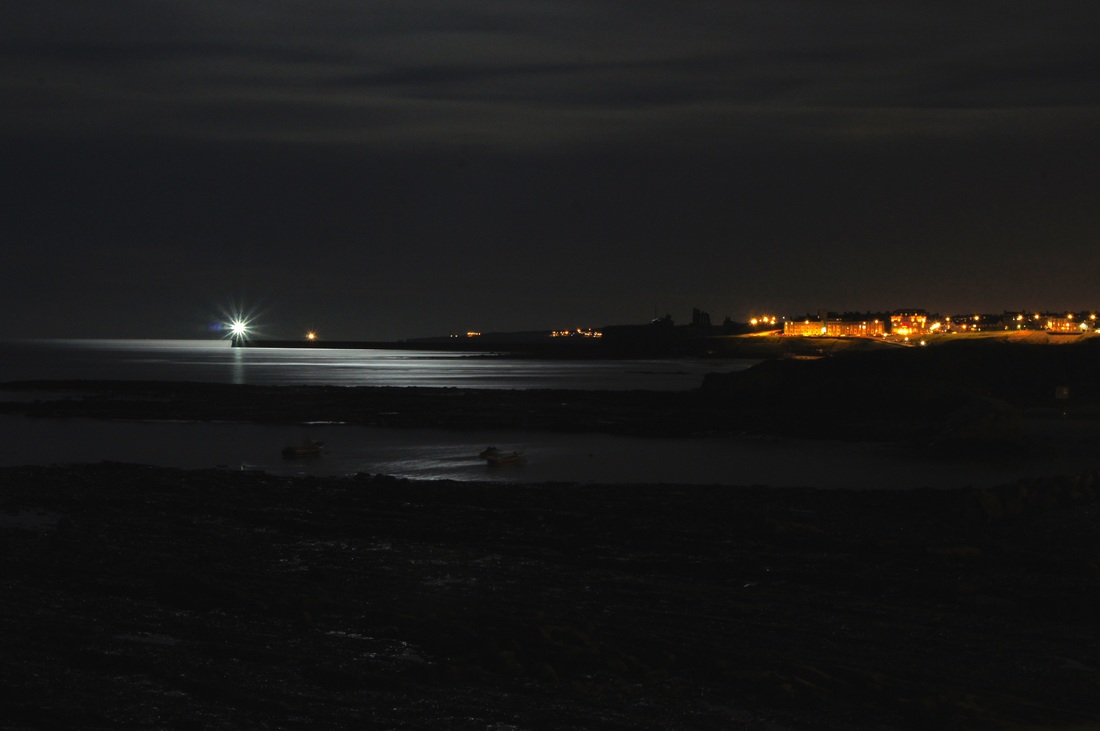a) the Matrix and we're all actually lying in alien tubs.
b) a computer simulation from a really advanced race trying to figure out evolution.
c) a universe within a universe within a universe of nested nuclear explosions for each big bang.
d) a 3D hologram in a 6D multiverse that we don't have the senses to understand.
e) a trick being played on us by God who really set everything up in one day 6,000 years ago.
f) the dream of that bird over there and as soon as he wakes up we'll all disappear.
g) etc., etc., etc.
Whoa.... Pass me another slice of pizza bro.
---------------------------------------------------
Lucy was having the most awful nightmare. She was dreaming that wolf-like monsters had burst through the windows in her bedroom while she was asleep and then started to tear her apart. She fought and screamed but she could feel their claws and teeth tear into her.
Then she awoke, sweating and breathing heavily. She looked around her bedroom, just to be sure, and let out a sigh of relief that it had all, indeed, been a dream.
Then, with a heart-stopping crash, monsters burst through her window and started to attack her, just as in her dream. The terror was magnified by the remembrance of the nightmare she had endured. Her screams were mixed with sobs as she felt the helplessness of her situation.
Then she awoke, sweating even more, breathing even faster. This was absurd. She had dreamed within a dream, and so the first time she had apparently woken up she was in fact still in her dream. She looked around her room again. The windows were intact, there were no monsters. But how could she be sure she had really woken up this time? She waited, terrified, for time to tell.
Sources: The first meditation from Meditations by René Descartes (1641); An American Werewolf in London, directed by John Landis (1981)
Baggini, J., The Pig That Wants to Be Eaten, 2005, p. 82.
---------------------------------------------------
This week's thought experiment is the kind of head-in-the-cloud nonsense that used to plague philosophy and caused Ludwig Wittgenstein to react by saying:
The difficulty in philosophy is to say no more than we know.
What can be said at all can be said clearly, and what we cannot talk about we must pass over in silence.
Wittgenstein went too far as he helped create the school of thought known as analytical philosophy and described it by saying:
The sole remaining task for philosophy is the analysis of language.
That is drawing the circle around the love of wisdom much too narrowly, but reading this thought experiment makes me a little more sympathetic to his overreaction. In his discussion of this chapter, Baggini says:
"Everything I 'remember' could be popping into my mind for the first time. This life, which feels as though it is more than thirty years old, could have begun in a dream only moments ago. ... Perhaps only when you awake will you realise just how absurd what seems normal to you right now really is."
And so what exactly are we supposed to do about any entry on the infinite list of infinitely remote possibilities that we're all just really acting under a monstrously big and fiendish illusion? Should we all give up trying to live good lives because, hey, you never know if the answer to life is really, a, b, c, d, e, f, or g from above? Of course not. So let's just move on and deal with the world as we see it. I'm sorry to have wasted your time with this particular diversion as much as I already have.


